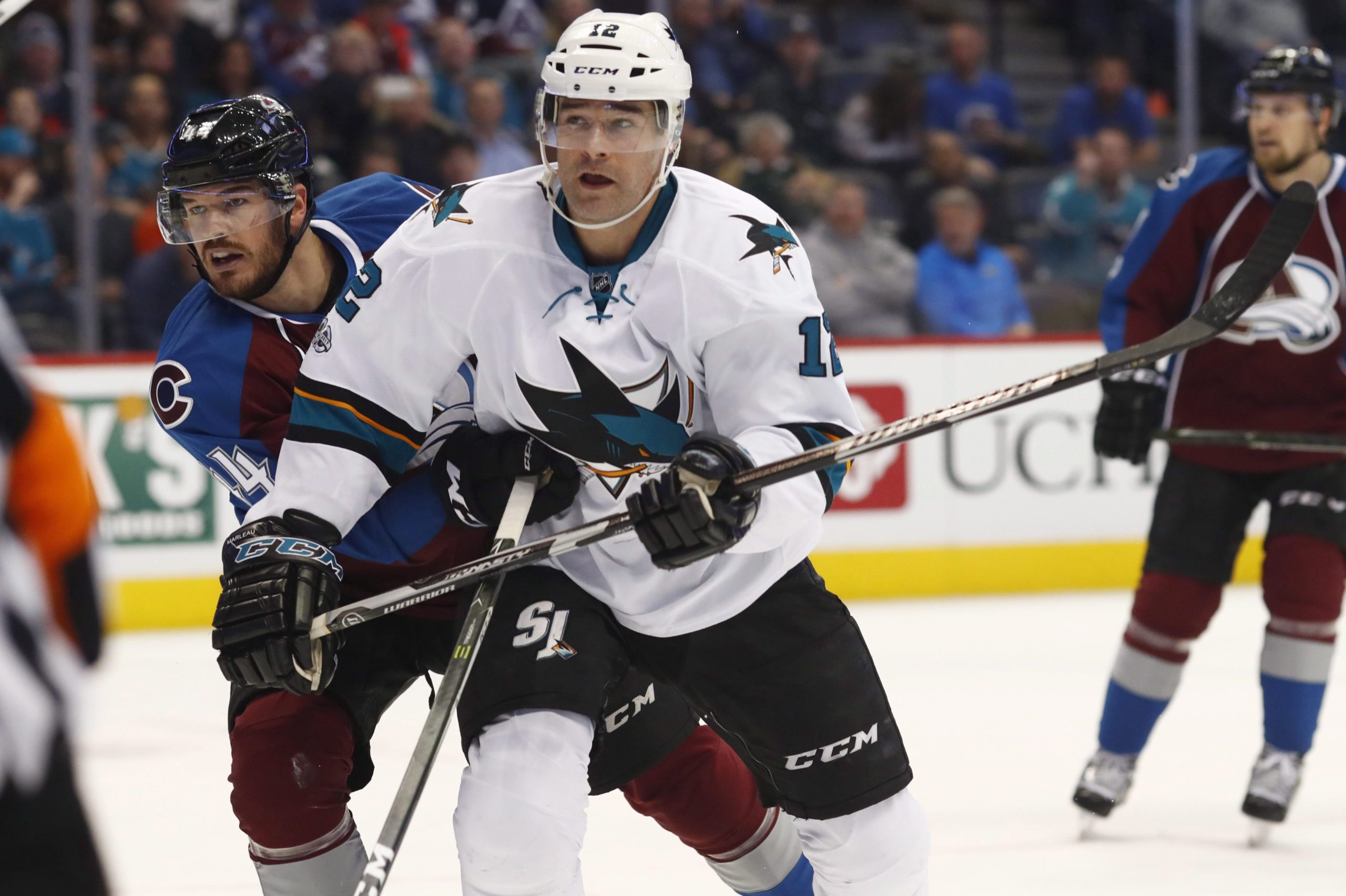Lou Lamoriello joined Prime Time Sports with Bob McCown on Tuesday to discuss the signing of Patrick Marleau, how he fits into the plan, and his future as Leafs General Manager.
Why alter the payment schedule, paying Marleau $8 million, then $6 million, then $4 million?
Lamoriello: It’s always easier if there were ever an opportunity to make a transaction in the latter part of the contract to trade him. It’s less for another team to take on.
Let’s talk a little bit about this deal. Obviously, you went after him. I assume this was not entirely a Lou Lamoriello initiative, and that you had conversations with your cohorts there at MLSE. Was there a consensus that this was a guy that you felt you wanted to get?
Lamoriello: I feel very comfortable answering that. It was a unanimous consensus on the player. He had a lot of teams that were interested in him for a lot of different reasons.
First of all, the player he is and the way he plays, and what his abilities are, and also the type of individual he is — that played a role into the decision. With the young players, we saw them last year and what they did and what they’re capable of doing, but they need the education, the professionalism and the support staff to help them grow in every way.
When you’re able to get a player like Patrick Marleau who, in our opinion, still has a lot of hockey left… put age aside, his skating abilities are what makes it very, very attractive. He’s an elite skater. Skaters who sort of labour in the latter part of the career, they have a difficult time. And with the way he is taking care of himself throughout his whole career, he’s played just about every game he could play, including the whole season the last three years.
Yes, there is always a risk in any decision that you make, but with where the team is at, what he can bring to the players that we have and the education process, it was really a [unanimous] decision. It was unanimous amongst our whole group with what he can do. Yes, it’s a pricey contract. We feel that this is probably the only time in the careers of the young players that we have that we could take this type of a chance. When I say chance — getting a player like this to help, not only on the ice but off the ice and in the locker room, with the growth. You can’t emphasize enough how important that is.
The additions of Dominic Moore and Ron Hainsey certainly support that. You do need the veterans. We saw what Brian Boyle did when he came in the locker room last year. We feel very comfortable with this transaction.
You say unanimous, and I’d imagine at the head of that in your room would be the coach. It’s the benefit of having the guy who gets to coach a couple of Olympic teams. What stood out most to you about what Mike Babcock said he liked about having Patrick Marleau with those national teams?
Lamoriello: I think the most important thing, seeing him play against us as recently as this year, is his elite skating ability and his hockey sense and his way of making other people around him better. He’s an all-situations player, too. He kills penalties. You can put him in any role that you might want in the lineup.
I understand that Babcock would presumably have the final say on this, but in the course of your evaluation of whether or not to pursue Marleau, did you address where you thought he might play? Is that the kind of thing you talk about, Lou?
Lamoriello: Yes, we do. There is no final say on anything on any one individual. We all talked about it, but this is a decision that we all take responsibility for. It’s not final say here or final say there. It’s a decision that is made in the best interest of the team and the best interest of the group.
Can you share with us where you think he’d be most likely to fit? Would it be on Auston Matthews’ line?
Lamoriello: I don’t think any of us know that. I don’t think Mike knows that. If you ask Mike that question right now, he couldn’t tell you where he’s going to play. Training camp will tell us. We don’t know where our players are going to be coming off of last year as far as exactly where they’re at in their growth. That’s a very difficult question to answer.
It certainly adds another chip – not that he would be the guy to move, clearly – to move out to get the defencemen. It gives you a little more depth, perhaps, at forward that you can deal from. Is it a constant thing with you guys? I know everyone focuses on July 1st, but is it a constant day-to-day thing now, that search for a defenceman? And how urgent is it in your mind?
Lamoriello: Right now, I’m extremely happy with where the team is at. We have depth. We do not have to do anything immediately, and we’re happy with the defence we have right now. You don’t just do something for the sake of doing it or keep pressing to do it. If there is an opportunity to get better – whether it’s yesterday, today or tomorrow – you do that. It’s not a case of dangling out because you have this. It’s a case of doing what’s right for the team, and if the opportunity comes about, you do it. But you don’t press it. It still takes two to make any decision that comes with reference to trades.
Nylander, almost assuredly, is going to be a very good player in this league. Marner is going to be a very good player in this league. I don’t think any of us deny that, but Matthews was kind of the guy that stepped out in his first season and demonstrated an extraordinary skill set that very, very few players have. Coming off of the decision in Edmonton to give McDavid the long-term contract, I wonder if you looked at that and thought, “Well, maybe it’s to our advantage to address Auston Matthews’ future sooner rather than later.”
Lamoriello: First of all, Auston is in his first year of his entry-level contract. You couldn’t even do that if you wanted to or were thinking of it. He still has two more years of entry level.
Do you think the number that McDavid got is a relevant number when you take a look at what Matthews did?
Lamoriello: I wouldn’t even go there. I wouldn’t even think of not only responding to that but of even thinking about that. That’s a little ways down the road. We’re certainly going to keep the pro forma within the five-year plan and change it every day, but that’s not something that we’re even going to think about.
Would you be happy going to camp with this roster? You sound like you might be. Or are you still hopeful that there are other pieces you might be able to move or acquire?
Lamoriello: Right now we’re extremely happy going into camp with this roster. There is going to be an internal competition that is excellent. We will certainly get our players’ attention at this time at the beginning of the summer to make sure that they come in in the best shape they possibly can. As I said, you don’t have an opportunity like this with where the core of our group for the future is young and in entry-level contracts to make a decision like this, where you can – if you want to use the word – “take a risk,” although the risk is certainly in favour of being very positive [for] the team.
When the playoffs were unfolding with that series against Washington, as close as it could be and the number of games that it went, did that change at all… I have a feeling you keep things close to the vest and the plan was going to be what it was going to be but was there any thought that, “Okay, we need to bump this up,” and maybe the Patrick Marleau move is a bit with that in mind? If they hadn’t done what they did in the playoffs, would you have made this move, in other words?
Lamoriello: Once again, that’s hypothetical. I wouldn’t even want to think about that. I say this with due respect, but why waste my time on what would’ve or could’ve or should’ve happened?
How about this then: Did that make you guys more excited, the fact that they went toe-to-toe with the President’s Trophy winners?
Lamoriello: Oh, I think it made everybody excited, but you also have to take a step back and understand how difficult it is coming off of that in going into the second year. The second year is the most difficult on young players for a lot of different reasons, especially when they have success. The reason for a move like this is to make sure that we help not have that happen because it’s, “I’m okay,” or maybe [we think] we’re better than we are. All of these things go through your mind. If you don’t address them, you’re going to get caught. It’s just the nature of the way people think and certainly the way players think. This is a tough league. Going into last year, there were teams that didn’t make the playoffs that were really pencilled in to be top two or three. We have to make sure that we think of everything and look at everything, and when you have an opportunity to sort of put your odds in a better shape, you do it.
Respectfully, you’ve been around this game for a long time. You’ve won Stanley Cups. You haven’t been very good. You’ve built teams from the bottom up and from the top down. When you came here, the first agenda was to disassemble and then reassemble. I think you got a three-year contract, but I can’t recall, and I’m not even going to ask you if you don’t want to say, but I’m wondering if you’re invigorated at this point in your career with what has happened here in Toronto and the success that you and the rest of the staff have brought? Albeit, it’s just a first step. Do you still want to keep doing this for a while?
Lamoriello: Let’s answer your first question. I’m excited with this group. The energy that they have created, they’ve brought something unique. They love the game. We’re very fortunate to have the young players that we have. They want to be good. They want to do the things that are necessary to be good. They want to do it right all the time. They get along. There is no one outside of the box, so to speak. They’re humble. It’s something special. You have to feel good around them. You have to give them every opportunity to succeed because they’re doing everything they can to succeed, and yet you still know, by being in the game, how difficult it is and how you can get off track or you can have things get in the way.
I want to reassure everybody that the core is the young players. We feel the young players are also going to help the veterans that we bring in. They see their enthusiasm; they see their excitement. Absolutely — I’m no different than anyone.
So that motivates you to want to stick around and see this thing through?
Lamoriello: Let’s be careful on that end of it. I’m going to do this as long as I feel good, or my family is good; all of those things. I’m not even thinking of that. I’m just thinking of what is at hand today and what we have to do this year. The end result will take care of itself, whatever that decision is.


































